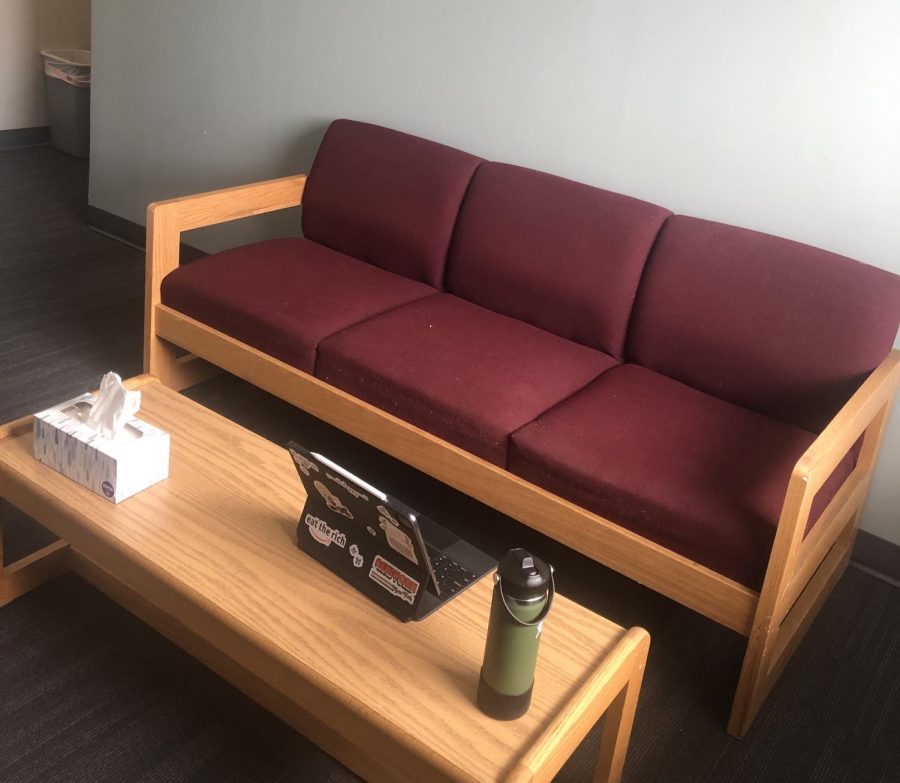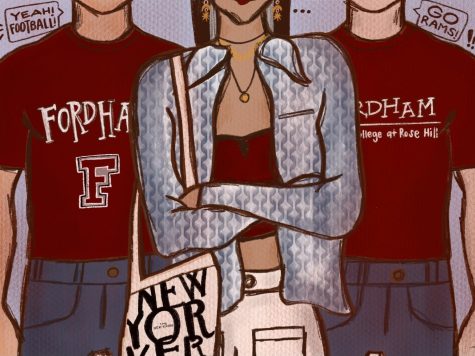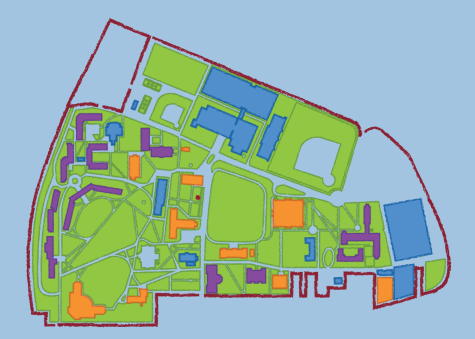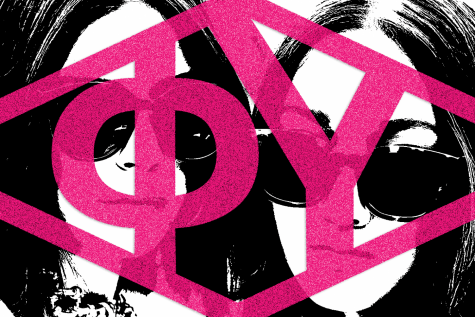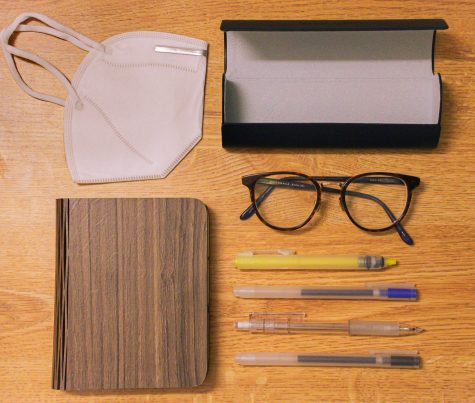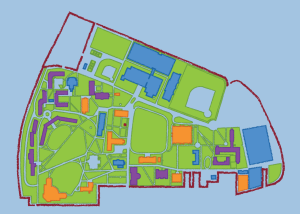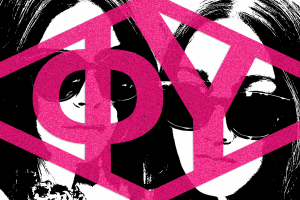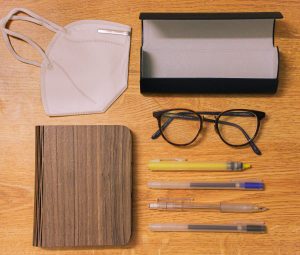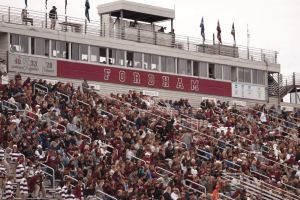So You’ve Tested Positive for COVID-19 — Now What?
My story of quarantining in McMahon Hall
Quarantined students must bring all necessary items with them to the apartment and are required to have groceries delivered.
September 21, 2021
We were two weeks into the semester, and after a hurricane and an extended weekend, we were ready to start our first full week of classes. On Monday, my roommate woke up with what she thought was a sinus infection and called University Health Services (UHS). After describing her symptoms, they told her to come to their office on the second floor immediately and get a rapid test. It did not go how we hoped.
I immediately realized that I had no idea what would happen next. For those living on campus at Fordham (specifically in McMahon Hall), take notes, because you never know if this could happen to you.
After my roommate tested positive and the remaining five of us were told to immediately call UHS to schedule tests. We were seen by the end of the day, and each of us received a rapid test. If our rapid test was negative, they gave us an additional PCR test for confirmation. My first test came back negative, and UHS told me to stay in my apartment and isolate until I got the results of my second test.
Of the six of us, four of my roommates, including myself, tested positive.
I did have some mild symptoms (a low-grade fever and some congestion), and figuring that I probably didn’t have a random cold or another virus when my roommates had COVID-19, I decided to order an at-home rapid test. Although I could have just waited for my PCR results, I strongly suspected that I had COVID-19; I could not properly isolate myself from my healthy roommates until I produced a positive result.
After spending an additional $60 to get an at-home rapid test delivered and 15 minutes of playing with the worst chemistry set I’ve ever owned, I tested positive for COVID-19. I immediately called UHS, who had me talk with contact tracing and the Office of Residential Life (ResLife). They asked me the names of everyone I had come in close contact with over the past few days, and I also personally notified anyone I thought might be at risk of getting infected. ResLife called me within the hour and sent me an email containing information about the virus and a brief packing list for my isolation period on the 19th floor of McMahon Hall.
Surprisingly, my PCR test came back negative the next day. A nurse from Fordham explained to me that false negatives in rapid and PCR tests are possible —especially in the early stages of contracting the virus— but false positives are extremely unlikely. The six hours between my first two tests and my last one made the difference in detecting the virus. Considering how mild my symptoms were, I probably would have accepted my negative test results and returned to business as usual if I hadn’t got the third test. I could have continued to spread the virus without even knowing I had it.
Since I am not on a meal plan, Fordham did not provide me with any food for my isolation.
Of the six of us, four of my roommates, including myself, tested positive. Two received positive rapid tests and one immediately had to quarantine. The fourth is an international student who was only able to receive her second vaccine dose a week before we were exposed. Since you are not considered “fully vaccinated” until two weeks after your second vaccination dose, she had to be isolated for 10 days even though her rapid test result was negative. From isolation, she learned that her PCR test was positive.
After testing positive, I was sent to the isolation floor to quarantine with one of my roommates. One of my other roommates went home, and the other was quarantined in a separate apartment with another COVID-19-positive student.
I brought as many clothes, school supplies and food as I could in one trip. Since I am not on a meal plan, Fordham did not provide me with any food for my isolation. We were eventually given a microwave. We could order groceries for delivery and ResLife delivered them outside our door between 11 a.m. and 5 p.m. if given at least a 24 hours’ notice.
We were also told that we could call UHS during their business hours if we felt ill and wanted medicine or to be seen by a health care professional. An important caveat: UHS has limited hours on weekends at both Rose Hill and Lincoln Center’s campuses, and Lincoln Center’s UHS office is closed on Sundays.
After we had been in isolation for a day, the city of New York called. And called. And called. All of my roommates who had tested positive received at least one phone call a day from the city ranging from 10 minutes to almost an hour long. Each phone call asked the same basic information (date of birth, address where you live, quarantine location, etc.), and eventually, I started to suspect that they were accidentally making the same initial phone call repeatedly for each of us. I’ve spent more time on the phone with the New York City Department of Health than I did with my mother over the past week.
I reached out to each of my professors and told them that I would be missing class for the next 10 days. All have been very accommodating, but I’m still concerned about catching up once my isolation ends, especially since all of my classes are continuing in person.
My circle of friends was shocked and unprepared when we were exposed to COVID-19.
Most frustratingly, I am fully vaccinated and already had COVID-19 last December, but I still contracted the virus. It is horrifying that we could have spread the virus without even knowing we had it, and others who contract the virus may not be as lucky as we’ve been.
My circle of friends was shocked and unprepared when we were exposed to COVID-19. I would advise all students to prepare themselves for a potential quarantine and stock up on toiletries (especially hand soap and tissues), over-the-counter and prescription medications, and frozen food. Although it is easier said than done, I cannot advocate enough for the university to bring back mandatory, periodic and free COVID-19 testing for all students, especially considering the increase in in-person activities and the virus’s mild effect on some students.
If you are contact-traced due to exposure to COVID-19, please take it seriously. Isolate to the best of your ability and get tested as soon as you can. If your test comes back negative, consider waiting a few days and getting another one, especially if you have any symptoms. And above all, keep taking COVID-19 seriously.
I am incredibly fortunate that the worst part of having COVID-19 so far has been quarantining. The first time I had COVID-19 was before the vaccine was available, and even though I am young and have no risk factors, I lost my sense of smell, had difficulty breathing and lost 10 pounds in one week. Everyone may respond differently to the virus, so do not assume that if you are vaccinated, have already had the virus or are relatively healthy that COVID-19 will not make you ill.
The best advice I can give is, of course, get vaccinated, wear a mask and practice social distancing as much as possible. I am expecting to receive a phone call from UHS after 10 days of quarantine, and if I no longer show any symptoms and pass a screening test, I will be able to leave quarantine. COVID-19 can come completely out of the blue, no matter how many precautions you take— but if you try to be safe and prepare adequately, hopefully, you can avoid the fate of Floor 19.

